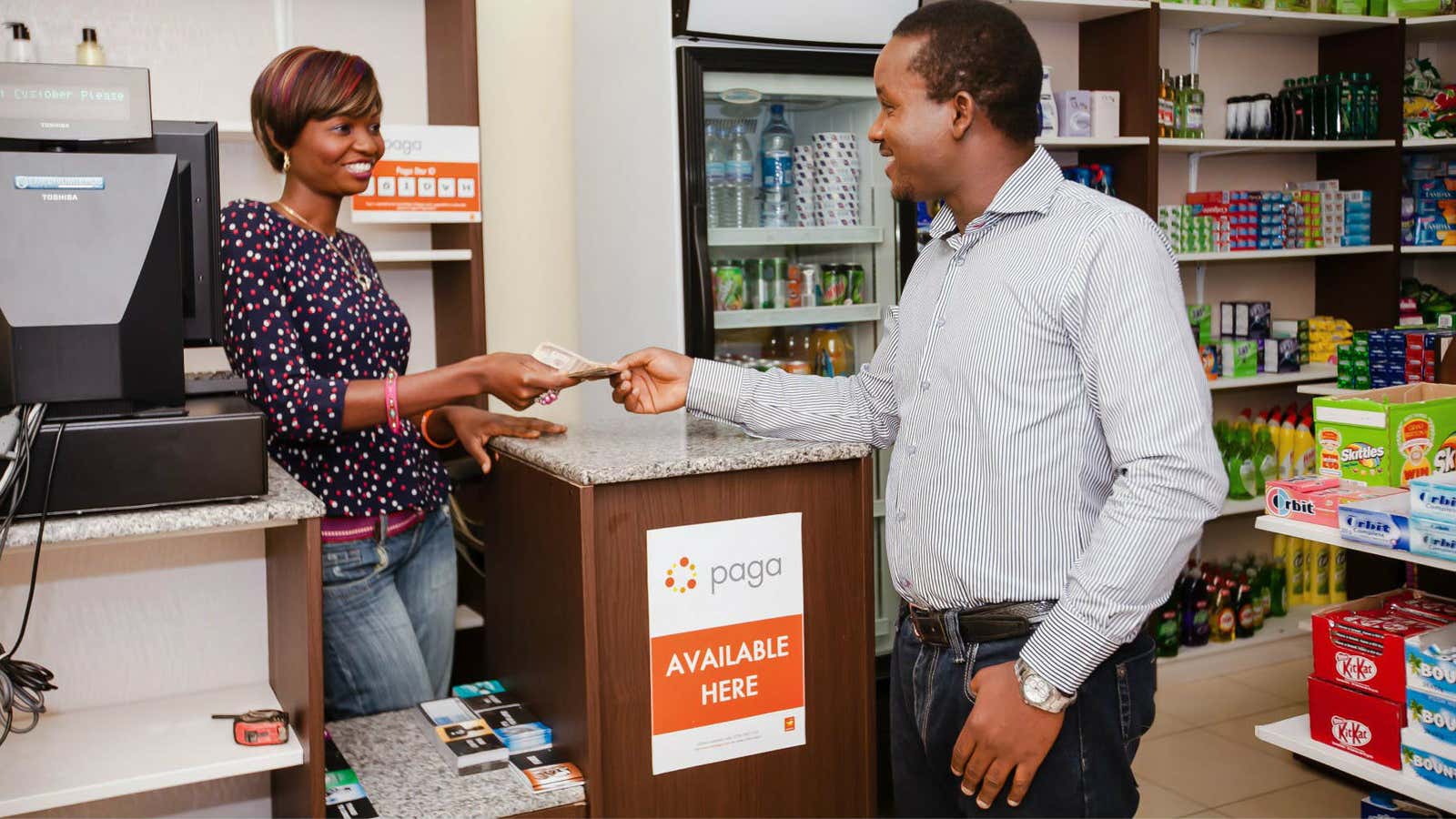It took a while to catch on, but Nigerians are finally using mobile money. Over the past decade, financial institutions and telecoms operators, sometimes in collaboration, and standalone firms have tried to deploy mobile money services in Africa’s largest economy with mixed success. The attraction to Nigeria as a potential mobile money market is clear: deepening mobile and internet penetration, low credit card penetration, and a 180 million-strong population. Despite these factors, mobile money services did not initially gain traction. But that’s changing as Paga, a seven-year old payments company, has marked a major milestone reaching 5 million customers.
Of that amount, Tayo Oviosu, founder of Paga, says almost a million are active users. But while more customers are great for business, a more critical detail came in Paga’s breakdown of its transaction sets. Peer-to-peer money transfers now outstrip merchant payments, typically paying bills, by transaction value.
Much of the growth in Paga’s money transfer operations is down to a network of 10,000 agents which Oviosu describes as “single largest network of financial access points in Nigeria.” Paga users, even without bank accounts, can send and receive money across the country through the agent network. The strong agent network and growth in customer acquisition means Paga has handled almost as many transactions over the past year as it did in its first three years of operations.
Given the success of its agent network, Oviosu says Paga is opening it to local banks. ”We want them to leverage our agents to roll out financial services to the mass market,” he said in a Medium post. “We want to help individuals pay and get paid,” he said. “We do not care if you are banked or unbanked. We do not want to be the bank.”
Nigeria’s mobile money space is set to be boosted even further following the launch of JumiaPay, the payments solution from Jumia, the continent’s biggest e-commerce operator spanning 23 countries. It will be going up against KongaPay, owned by e-commerce rival Konga.
Jumia’s solution will inevitably focus on providing Jumia users with payment options for online shopping in a bid to reduce the prevalence of the payment on delivery method which currently “constitutes between 70-90%” of Jumia users preferred payments method. But Jumia is also reportedly teaming up with leading telecoms firms on the continent to launch their mobile money solutions across its platforms spanning across eight African countries including Nigeria.
